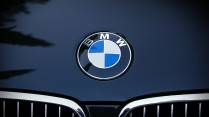Mercedes-Benz Entry-Level Cars Miss Fuel-Saving Tech, Disappointing Buyers
By Dabbie Davis
Mar 04, 2024 03:38 AM EST

Mercedes-Benz Australia declared that it gives up on its original intention to equip its entry-level vehicles with a 48-volt mild hybrid system. This decision has resulted in heightened fuel consumption and raised questions about transparency. The most affordable models from Mercedes-Benz Australia have fallen short of their commitment to include mild-hybrid technology, with some being delivered featuring a different engine tune than originally indicated.
Dropping Fuel Saving Technology
Mercedes-Benz Australia clarified that the 48-volt mild hybrid system that was first anticipated will not be available for the A-Class, CLA, GLA, and GLB "200" vehicles. This data pertains to the company's entry-level compact automobiles.
It was hoped that by using a belt-driven starter-generator, this method would maximize fuel efficiency. The absence of this system has led to increased fuel consumption in these vehicles, prompting concerns among consumers and industry observers.
Citing a recent post by CarExpert, Mercedes-Benz earlier declared that a 48-volt mild hybrid system, which employs a belt-driven starter-generator to minimize fuel consumption, would be standard on the '200' variants of the new A-Class, CLA, GLA, and GLB. However, the automaker has now said that the mild hybrid system is exclusive to the 250 and AMG 35 versions of each car and is absent from the cars that were transported to Australia.
Earlier communications provided to the media outlined the power and torque specifications for the four models, indicating an output of 120kW and 270Nm respectively. Mercedes-Benz has stated that vehicles equipped with the 250Nm engine have been labeled correctly for fuel consumption, while those with the 270Nm engine will need new labels.
The exact number of vehicles delivered to Australian customers with the lower-torque yet more fuel-efficient engine has not been confirmed by Mercedes-Benz Australia.
READ MORE: Stay Updated: Launching of New Diesel Cars, SUVs Set to Hit the Market
Impact on Consumers, Fuel Consumption
The information from BNN highlights that the absence of the mild-hybrid system has led to higher fuel consumption rates in the affected vehicles. This not only impacts the ownership costs for consumers but also raises concerns about the transparency and credibility of the automaker's assertions.
Mercedes-Benz is presently undertaking the task of updating the fuel consumption labels for these vehicles to portray precise figures. This scenario underscores the significance of transparent communication and the potential impact on consumer trust when expectations are not fulfilled.
The discovery that the mild-hybrid system was excluded has resulted in affected vehicles displaying higher fuel consumption rates. This not only impacts consumers' ownership expenses but also prompts inquiries about the veracity and dependability of the automaker's assertions.
The latest events concerning Mercedes-Benz's base models underscore the intricacies involved in the automotive industry's transition toward eco-friendly technologies. Although encountering challenges like these is regrettable.
They also present a chance for companies to review their tactics and communication methods, guaranteeing that forthcoming advancements are not only pledged but fulfilled. With consumers growing more environmentally aware and technologically adept, the demand on automakers to meet and surpass expectations will undoubtedly rise.
Currently, Mercedes-Benz is in the midst of updating the fuel consumption labels for these vehicles to ensure accurate representation of the figures. This highlights the critical role of transparent communication and the potential impact on consumer trust when expectations are not aligned with reality.
RELATED ARTICLE: Mercedes-Benz Redefines EV Visuals Works on Latest Design Language
Copyright @ MOTORTIMES, All rights reserved. Do not reproduce without permission.








